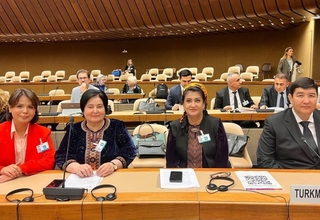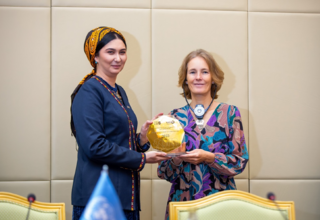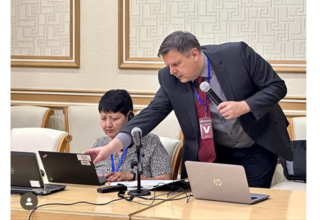Collecting, analyzing and disseminating quality, timely and disaggregated population data to identify the population size, structure and distribution is essential to plan development work and is also key for informed decision-making.
It took hundreds of thousands of years for the world population to grow to 1 billion – then in just another 200 years or so, it grew sevenfold. In 2011, the global population reached the 7 billion mark, and in 2021, it stands at about 7.8 billion.
Understanding the challenges and opportunities that come with demographic shifts, and the political economic, social, and peace and security consequences, is fundamentally important for all countries to be able to develop effective responses and achieve the 2030 Agenda for Sustainable Development. At all stages of the demographic transition, investing in human capital and drawing on demographic diversity will drive economic growth and achieve sustainable development, and is key to ensure economic, social and environmental justice. In Central Asia, this relates to relatively large youth populations and harnessing the demographic dividend.
UNFPA helps countries identify and understand such trends, which are critical to development. UNFPA is one of the world’s largest funders of population data collection. Without population data, especially on those left furthest behind, it will not be possible to achieve the three transformative results that UNFPA aspires to contribute to as part of the 2030 Agenda: (a) ending preventable maternal death, (b) ending unmet need for family planning, and (c) ending gender-based violence and all harmful practices.
Within the framework of its current five-year Country Programme for 2021-2025, UNFPA is supporting investments in governance reforms and people-centered policies and services that will be based on high quality disaggregated data, including population data.
Key state ministries and agencies, under the coordination of the State Statistics Committee, will be supported in introducing international methodologies and systems to collect and analyze disaggregated population data, which respond to the priorities of state programmes, as well as the data gaps in monitoring Sustainable Development Goals related to the International Conference on Population and Development Agenda.
Within its technical advisory support, UNFPA will support the Government of Turkmenistan in holding the 2022 Population and Housing Census, advancing the national civil registration and vital statistics system, helping to collect, process and analyze data to measure the progress towards the SDGs and provide evidence for essential Government development programmes and initiatives, holding thematic population surveys and research to provide data on the most vulnerable groups of population, including persons with disabilities to ensure that no one is left behind.
UNFPA’s partnership with the Government will also focus on developing the capacity of public servants and policy makers in the application of modern methods of data analysis for decision-making, with a focus on demographic trends.
Read the Policy Brief "Rights and Choices for All: Understanding Population Dynamics." The Policy Brief provides an issue overview for the importance of population data for development globally and in Turkmenistan, explores trends in Turkmenistan, UNFPA's support, and new priorities and opportunities for partnership during 2021-2025.




